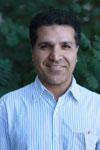What is public scholarship?
Broadly speaking, public scholarship is scholarly work intended for audiences beyond the university. Knowledge sharing and knowledge translation are at the core of public scholarship.
Inside Higher Ed describes public scholarship as a continuum of engagement:
Public scholarship has many points of entry and can be thought of as a continuum of engagement. At one end are more individual public engagement efforts, such as writing a blog post or giving a talk about your research for a public audience or a radio interview that informs current debates or policy. On the other end are longer-term, more highly collaborative, two-way projects in which partners co-create new knowledge together in a reciprocal way.
Public scholarship includes, but is not limited to, public lectures, blog posts and online newsletters, op eds, media interviews, podcasts, and collaborative projects co-created with community partners with multiple levels of contribution. It can also include public engagement efforts that are not necessarily based on personal research programs (such as educational talks, storytelling, videos, or cultural and education sharing).
This page gathers together links to some of the recent public scholarship by faculty at STM.
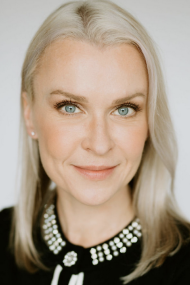 Sarah Knudson (Sociology)
Sarah Knudson (Sociology)
With Lara Paul. "DISABILITY, CONNECTION and COMMUNITY: Social and Educational Perspectives." A Thinker's Tea Party Lecture Series.
June 17, 2025
Emmanuel with the Refinery Arts & Spirit Centre
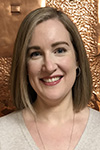 Nadya Foty-Oneschuk (Languages, Literatures, and Cultural Studies; PCUH)
Nadya Foty-Oneschuk (Languages, Literatures, and Cultural Studies; PCUH)
"Ukrainians in Saskatchewan: An Historical Overview"
March 6, 2025
Heritage Regina
 Caroline Arbuckle MacLeod (Archaeology)
Caroline Arbuckle MacLeod (Archaeology)
"In Amongst the Coffin Wood," Saqqara Diary 2023 – Second week, Museo Egizio, March 7, 2023.
 Cindy Wallace (English)
Cindy Wallace (English)
“Empathy is Both Better and Worse Than We Think,” Sojourners, February 3, 2021.
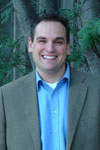
Charles Smith (Political Studies)
"Opinion: Saskatchewan budget will show whether government heard message." The Saskatoon StarPhoenix. March 14, 2025. Simon Enoch, co-author.
"Opinion: Saskatchewan, Alberta respond with deference to Trump threats." The Saskatoon StarPhoenix. January 24, 2025. Simon Enoch and Andrew Stevens, co-authors.
"In defence of 'anti-scab' legislation." CBC - Saskatchewan, April 15, 2020.
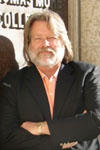 Bohdan Kordan (Political Studies, PCUH)
Bohdan Kordan (Political Studies, PCUH)
"Bohdan Kordan: Doors reflect horror of war in Ukraine." The Saskatoon StarPhoenix, March 27, 2023.
 Fachrizal Halim (Religion and Culture)
Fachrizal Halim (Religion and Culture)
"Opinion: Ramadan in Saskatchewan important during time of division." The Saskatoon StarPhoenix. March 7, 2025.
"New arrivals can be part of reconciliation." The Saskatoon StarPhoenix, September 11, 2019.
"Why do hate crimes against Muslims increase?" Regina Leader-Post, April 3, 2019.
Saeed Moshiri (Economics)
"Western secession is all the rage. How would an independent West fare economically?" CBC. May 2, 2025.
David McGrane (Political Studies)
"When Left Is Too Left in a Canada Rattled by Trump." New York Times. April 4, 2025.
Charles Smith (Political Studies)
"Unprecedented shift carries Liberals to victory." The Catholic Register. April 29, 2025.
"Sask. voter turnout rate lingering near 50 per cent 'a problem': Expert." Regina Leader Post. October 30, 2024.
"Expert says 'urgency' to get deal done for Sask. teachers can push binding arbitration forward." Regina Leader Post. June 13, 2024.
"Teachers' unified rejection shows 'decade of frustration' with province: professor." Regina Leader Post. May 10, 2024.
"Billboards indicate Sask. Party 'preparing for a fight' with STF: prof." Regina Leader Post. February 16, 2024.
"Teachers start voting on contract offer after sask. premier alludes to extending school year." Saskatoon Morning, CBC Radio.
Nadya Foty-Oneschuk (Ukrainian Studies, PCUH)
Ukrainians in Sask. gather to commemorate 90 years since the Holodomor. CTV News. November 21, 2023.
 Oksana Dudko (History, PCUH)
Oksana Dudko (History, PCUH)
Russian invasion of Ukraine. Global News. February 25, 2022.

Sarah Knudson (Sociology)
Pandemic's impact on dating. Global News. February 15, 2021.
David McGrane (Political Studies)
Host, Social Democrats of the North, a Perspectives Journal Podcast Series, published by the Broadbent Institute. https://perspectivesjournal.ca/category/podcasts/social-democrats-of-the-north/
 Kylee-Anne Hingston (English)
Kylee-Anne Hingston (English)
Interview with vlogger Kate Howe, Kate Howe Reads, Victober Series. 2023. https://youtu.be/-IRYWnFk59M
Victorian Samplings Podcast. Hosted by Vanessa Warne, Jessie Krahn, and Natalie LoVetri. Season 2 Episode 5: Media and Making.
 Bohdan Kordan (Political Studies, PCUH)
Bohdan Kordan (Political Studies, PCUH)
Civically Speaking. CFCR radio and podcasts with Lenore Swystun and co-host Christina Cherneskey.
February 21, 2023: "One Year Later: Russia's Invasion of Ukraine. The geopolitical implications. A discussion with Dr. Bohdan Kordan."
January 17, 2023: "An Interview with Dr. Bohdan Kordan"
November 22, 2022: "A Conversation with Dr. Bohdan Kordan about Russia's Invasion of Ukraine - Geopolitical implications"
 Paulette Hunter (Psychology)
Paulette Hunter (Psychology)
Strengthening a Palliative Approach in Long-term Care (SPA-LTC)
Today, people live longer with a variety of chronic health conditions. And from the earliest stages of their illness, most people living with life-limiting conditions want their healthcare teams to communicate actively and work in partnership with them to understand their needs, help address their suffering, consider their quality of life, and provide the information needed to plan ahead. While these are all elements of palliative care, they need not be reserved for the last days or weeks of life. To acknowledge that these needs can be addressed earlier, “a palliative approach to care” introduces the original principles of palliative care to a range of settings, such as homes, clinics, hospitals, and long-term care settings.

